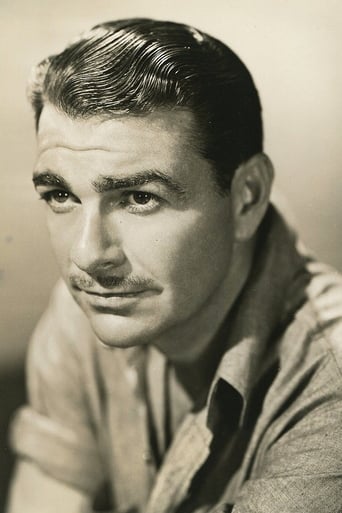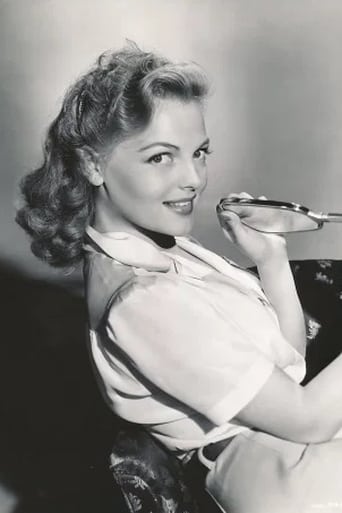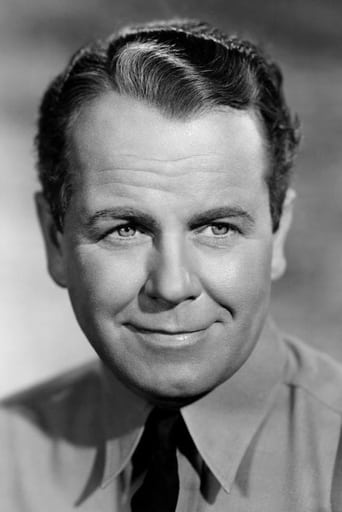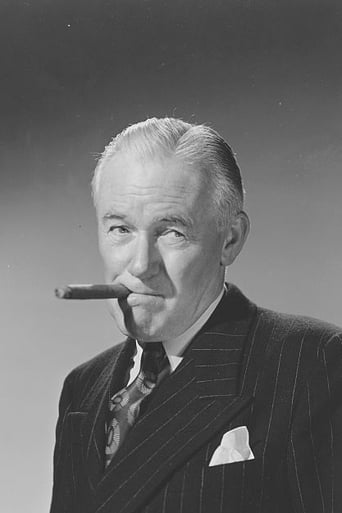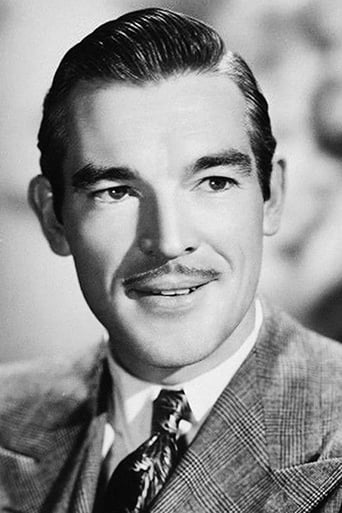Spikeopath
I Wouldn't Be in Your Shoes is directed by William Nigh and adapted to screenplay by Steve Fisher from a story by Cornell Woolrich. It stars Don Castle, Elyse Knox, Regis Toomey and Charles D. Brown. Music is by Edward J. Kay and cinematography by Mack Stengler.Hoofer Tom Quinn (Castle) is convicted of murder on circumstantial evidence. Sentenced to death row, Tom must hope his wife Ann (Knox) can find the proof of his innocence before his date with death.Pretty routine noir exercise this one, but definitely of interest to film noir lovers looking for something they may not have seen before. In true noir fashion fate and coincidences play a huge part in the narrative drive, as does a bit of obsessive yearnings and questionable moral standing. The look is nifty, very noirish when the prison or the church is involved, or the nighttime shots in general, while there's a quirky edge to proceedings that always keeps the pic interesting. The ending is a disappointment (in true noir terms), and apart from the always reliable Toomey, the acting only just about passes muster, but it's worth a look see, even if it isn't the under seen gem some would have you believe... 6/10
dark_frances
This was one of the stranger murder frame-ups: not by adding fake fingerprints, not by placing the fall guy at the murder spot at the right time, not even by hiding the murder weapon in his house. It was framing by shoes and shoes alone. Seriously, if you wanted to commit a murder without being discovered, you would absolutely think of stealing someone else's shoes, put them on your feet, thank god they fit, and go ahead merrily with your murderous plan, content that you're free of any trouble and that the man whose shoes you stole will surely take the fall for you.And so, the main, obvious, explicit plot line of the movie is quite awkward, or it makes the police look like an awesomely incompetent institution. Of course that the main guy must have been framed. Or, at least, if you, Mr. Detective sir, think that he wasn't, then you should definitely arrest and convict the wife too, since she swore that he was at home at the time of the murder; therefore you, Mr. Crooked Detective sir, should find a better plan.Fortunately, all this is of little consequence. As we find out in the end, during a rather wonderfully eerie scene, the whole movie was built almost literally around an idiomatic expression - to be or not to be in someone else's shoes.So we have the Crooked (and frankly rather sick) Detective, Police Inspector Clint Judd, aka Santa Claus, who fell in love with a dancer, Ann. He went ahead and planned most of his future life around this love, before he even talked to her, or rather danced with her for the first time. Of course, there was a little impediment - not that the girl might not love him back, which is something totally beyond his faintest consideration, but that she is married. And to a fellow dancer, nonetheless.So what does he do? Since he wanted to figuratively walk in her husband's shoes (Tom), he proceeds to literally walk in his shoes in order to frame him with a murder and get him out of Ann's sight. I found this narrative trick so cute that I'm willing to gloss over the above-mentioned technicalities of the set-up. Besides, they were the husband's only pair of shoes, carelessly thrown through the window to chase away a bunch of cats in heat - quite an annoying reminder of what his character would have done after turning off the light next to his beautiful young wife, had his movements and desires not been restricted by the darned Code.And so, the Gods of the Noir take notice of this transgression. What, you're throwing away your only shoes, and your dancing shoes too? OK, let's take control over your life away from you. Then the second transgression occurs: Ann wants to keep a large sum of found money, which might well be, as Tom insists, someone's life savings. And she persuades him to go along with her plan of waiting for a week to see if anyone reclaims it in the papers. OK that seals the deal, say the Gods of the Noir, you two are doomed. And the whole fatal mechanism is set in motion, all ending up with the husband on death row....Except it turns out it wasn't the Gods themselves who orchestrated the whole deal, it was nothing but a mere mortal playing with idioms, using a man's shoes against himself to make them uninhabitable. There is no real talk of a destiny in this movie, it's all a mad man's game, a man who, with clean blue eyes and a beaming smile, explains to the girl of his mad dreams the length to which he had gone to stalk her, the time and work he had spent to build her a golden cage, and how happy she'd be in the life he had designed for her.This was a surprising noir, populated by a host of characters slightly different from the usual suspects. We have indeed two poor schmucks and one femme fatale, along with a host of barely sketched characters. But the woman seduces in spite of herself, and when she does play her deadly game in earnest, she's so distressed that only a mad man could have believed her. Poor schmuck #1, Tom the husband, is absolutely passive and properly set at the hands of his fake destiny, but he's hardly the focus of the story, he works more like a motive for the true actors - the wife and poor schmuck #2. The latter would not be so poor and pitiful, after all he orchestrates the whole deal, were it not for the genuine ill love and utter remorselessness of his behavior. The detective is eerily clueless about the moral transgressions he is committing, about the morbidly obsessive nature of his love and the unforgivable nature of his deed. He is at the complete mercy of his cravings, a mere plaything in the hands of biology - or of some whimsical God taking a break from its lawful duties. Had he not been murdered, the man should have been put in a mental asylum, not in jail...And then there are, of course, the cute little details of the Quinn household, way warmer and more personal than the norm for a noir.Really, one thing on top of another, it turns out that this little movie is quite the buried treasure. I just wish I could find a better copy, because, as it is, I don't dare to say a thing about the visuals. But the whole thing came for sure from the wild bank of the noir river, where it dwells alongside Dassin's "Naked City", Ulmer's "Detour", Montgomery's "Ride the Pink Horse" and Daves' "Dark Passage".
bmacv
A film noir that was all but lost but recently resurfaced, I Wouldn't Be In Your Shoes brings yet another of Cornell Woolrich's paranoiac nightmares to the screen. Don Castle, a hoofer on his uppers, shares a cramped room in a New York boarding house with his wife and sometime partner Elyse Knox. While he frets in his bathrobe, a fifth of gin on the bed-table, she entertains gentlemen at a buck-a-dance academy. One night, he hurls his good tap shoes (actually, his only pair of shoes) out the window at some randy cats. When he goes to retrieve them, they aren't there, but mysteriously reappear outside his door next morning.Next thing, he's hauled in for the murder of a reclusive old miser in the neighborhood. The impression of one of his shoes clinches the conviction (and it doesn't help that he just happened to find a wallet stuffed with the old-style bills the victim hoarded). He's waiting for his execution as the movie opens, and most of the story gets told through flashbacks.
The third major character is a cop, Regis Toomey, who had met Knox at the tango palace and taken a shine to her. Desperate to clear her husband, she feigns reciprocation of Toomey's interest so he'll help her out. Toomey's another example of the obsessive, stalking cop, created by Laird Cregar in I Wake Up Screaming (1942) and reprised by Richard Boone in its remake Vicki (1953). He breaks a new development in the case by finding the tenant of another room within shoe-shot of Castle's, but this proves to be only a rather tasty red herring. As the clock ticks down to midnight and curtains for Castle, Knox stumbles upon the clue that cracks the case....Many forgotten films from the noir cycle turn out to be just what one might suspect: hackneyed, humdrum crime programmers. But, like Decoy, I Wouldn't Be In Your Shoes surprises by its competence. The dancing couple exude appeal, Toomey and the other cops offer acting rather than shtik, and the plot unfurls with reasonable deftness. It even looks good. As a restoration to the noir canon, it's more than welcome.

